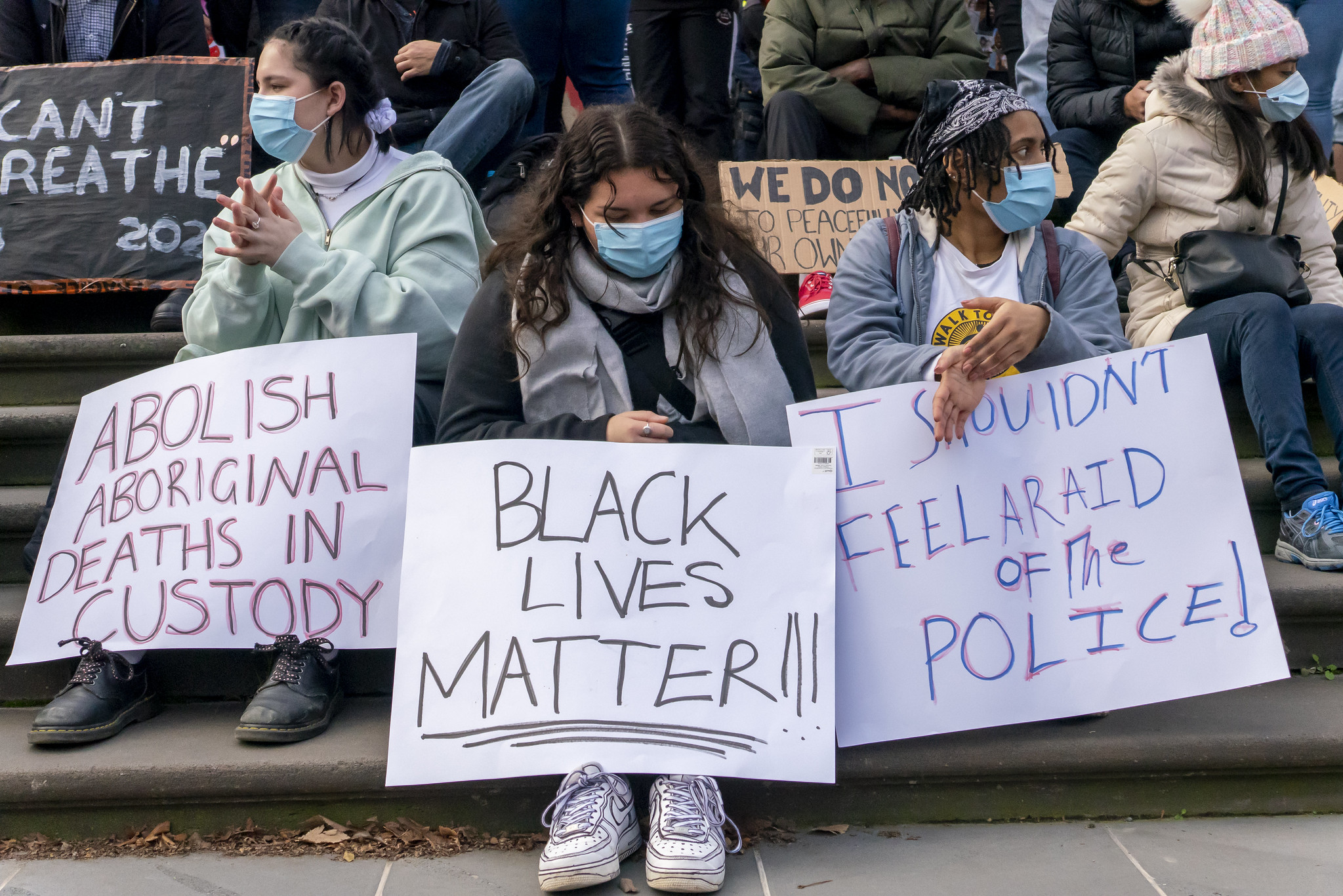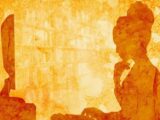George Floyd’s death at the hands of members of the Minneapolis Police Department was recorded for all to witness and the incident ignited global outrage at the targeted misuse of force. As protests have rolled out in the weeks that have followed, Black leaders remind us that this incident is far from isolated. Communities most impacted by police misconduct understand that Canadian society is shaped by a discriminatory, racist justice system where Black and Indigenous people are treated differently from those who are neither Black nor Indigenous. The message that Black Lives Matter makes a necessary distinction that the Black experience is not the same as other peoples’, that a disproportionate amount of prejudice and hate is focused and targeted and therefore, important to acknowledge as unique.
North of the U.S. border, Black and Indigenous people watch and take note with a deep understanding of continued systemic and overt racism in the U.S. because the same discriminatory attitudes can also be found in Canada. But in many ways, the experiences of Indigenous people are different. Our roots run deep in these lands that are now occupied through broken treaties and violence. Our experience of colonization is one of cultural genocide, the outlawing of our cultures and attempts at forced assimilation. This grotesque abuse represents an ongoing legacy that impacts me and my children to this day.
You may unsubscribe from any of our newsletters at any time.
More on Broadview: Artist calls out Indigenous stereotypes with very public work
On these lands, we are targeted for extinction through racist government policies, no matter which party forms government. As a result, there is a lopsided application of the justice system that sees First Nations, Métis and Inuit people face police brutality at disproportionate rates to other non-Native people. Racist attitudes can be found on a daily basis in any social setting and are sometimes expressed without shame. People filmed treating others with prejudice seem proud of their behaviour and don’t try to conceal it. These disturbing ideas are buried deep in the hearts of people who are unwilling to examine history from an Indigenous lens. Canadians stay purposefully ignorant of how we got to where we are today. In the absence of social and economic justice, poverty, racism, segregation, and the poor social determinants of health will continue to flourish.
I don’t necessarily understand the unique set of circumstances that Black people face on Turtle Island, but that doesn’t mean I can’t empathize with the truths that protesters are showing us. I see the courage and dignity of everyday people marching for justice and calling for freedom. I see marginalized people demanding an end to discrimination. It’s important to allow civil rights leaders a chance to be heard so the rest of us can reflect on their message and make social change that reflects inclusivity and appreciation of each community’s uniqueness. When I hear about Black struggles, I think of my own life trying to make my way in a country that can be intolerant and discriminatory. I can relate to the pain and anger experienced by Black folks who live with systemic as well as overt examples of racism on a daily basis.
I hear an unprecedented chorus of voices, united in their stand. Black Lives Matter is a wake-up call for Canadians to examine themselves and supporters of movements such as Idle No More can most certainly relate to ordinary people fighting for social justice, because, as the history of civil rights shows, it is through protest that lives can change for the better.
Mike Alexander is a Kamloops, B.C.-based artist who works primarily with acrylic paints. He has had four solo exhibitions and recently completed his first graphic novel. He is Anishinaabe and originally from Swan Lake First Nation.
I hope you found this Broadview article engaging. The magazine and its forerunners have been publishing continuously since 1829. We face a crisis today like no other in our 191-year history and we need your help. Would you consider a one-time gift to see us through this emergency?
We’re working hard to keep producing the print and digital versions of Broadview. We’ve adjusted our editorial plans to focus on coverage of the social, ethical and spiritual elements of the pandemic. But we can only deliver Broadview’s award-winning journalism if we can pay our bills. A single tax-receiptable gift right now is literally a lifeline.
Things will get better — we’ve overcome adversity before. But until then, we really need your help. No matter how large or small, I’m extremely grateful for your support.
Jocelyn Bell
Editor/Publisher















Yes you’re right, it is not only the “Blacks” who suffer discrimination. Jews, Asians, Eastern Europeans all suffered from the “British” supremacy.
6.5 million Africans (always the “healthy ones”) were led away from their homeland, ripped from their culture, and forced to assimilate. Thus leaving Africa in a poorer state of affairs then it was. (Whether perceived or in reality).
These people had no land, money, rights or dignity. At least Indigenous had “some” freedom, “some” place they could live on their own, and had “some” way of becoming independent. Are things better for “Blacks” and Indigenous people – yes and no. Both have suffered cultural loss, both have suffered financial instability, both have been robbed of their native languages. In spite of “white power” being what it is, both have a run to make it through life (I know not as fast as we would like), both have it far better than others in this world (would you like to be a North Korean or a Christian in South Sudan?) Am I saying things are great for you? No! But things could be worse.
Remember Black Lives Matter is a political cult, not a tolerant movement. They are thinking of themselves as a socialist movement, not about injustices against those suffering from a dominant culture.
Why would anyone want to “join forces” with a Marxist group to lead our nations into a Uzbekistan, Eritrea or as mentioned North Korea?
Remember, a militant call to Civil Rights will lead to a Civil War. I’ve read and have seen the results of this and I don’t care for it.
The Church ought to distinquish between its support of black lives and the organization called Black Lives Matter. We ought to be much more reticent to support the organization. Read its manifesto. Check the foundstion of its political ideology. Know its tactics intentionaly include steps to demoralize, destabilize, and create a crisis of confidence in our institutions and the rule of law. These are is classic actics of subversion which justifies violence and the destruction of property as legitimate means to achieve political goals. Read the statements of it top leaders. Familiarize yourself with how they treat other Black people who speak out against the organization.
The Church ought to distinquish between its support of black lives and the organization called Black Lives Matter. We ought to be much more reticent to support the organization. Read its manifesto. Check the foundstion of its political ideology. Know its tactics intentionaly include steps to demoralize, destabilize, and create a crisis of confidence in our institutions and the rule of law. These are classic tactics of subversion which justifies violence and the destruction of property as legitimate means to achieve political goals. Read the statements of it top leaders. Familiarize yourself with how they treat other Black people who speak out against the organization.